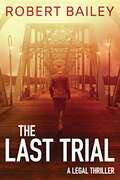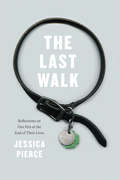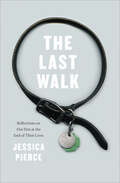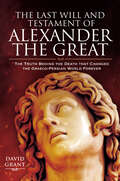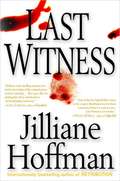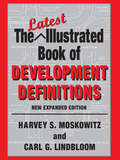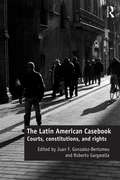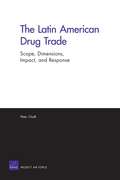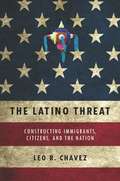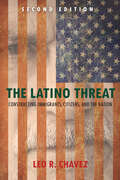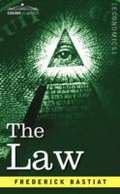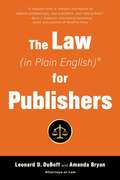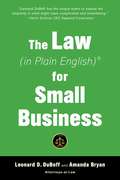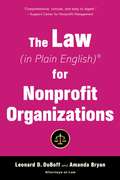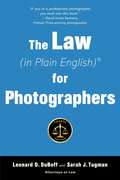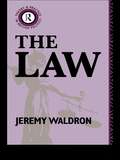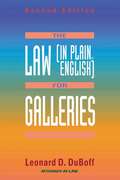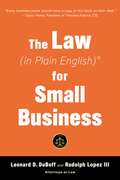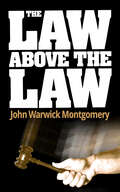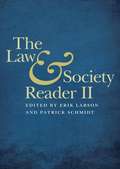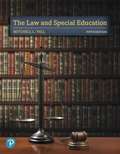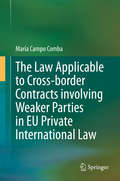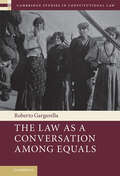- Table View
- List View
The Last Trial (McMurtrie and Drake Legal Thrillers #Book Three)
by Robert BaileyFormer law professor Tom McMurtrie has brought killers to justice, and taken on some of the most infamous cases in Alabama’s history. Now he’s tackling his greatest challenge. <p><p>McMurtrie’s old nemesis, Jack Willistone, is found dead on the banks of the Black Warrior River. Willistone had his share of enemies, but all evidence points to a forgotten, broken woman as the killer. At the urging of the suspect’s desperate fourteen-year-old daughter, McMurtrie agrees to take the case. <p><p>But as seasoned as McMurtrie is, even he isn’t prepared for how personal and dangerous this case is going to get. With the trial drawing near and his sharp young partner, Rick Drake, dealing with a family tragedy, he recruits his best friend, Bocephus Haynes, to help investigate. <p><p>As key witnesses disappear and old demons return, time becomes McMurtrie’s most fearsome opponent. Soon loyalties will be tested and the boundaries of law will be broken as McMurtrie fights to save his legacy—and his client’s life—before the truth is buried forever in the muddy waters of the Black Warrior.
The Last Undercover: The True Story of an FBI Agent's Dangerous Dance with Evil
by Bob HamerA 26-year veteran of the FBI reflects on the challenges he has endured and overcome, as he stared the dark side of humanity in the face and never blinked.
The Last Walk: Reflections on Our Pets at the End of Their Lives
by Jessica PierceFrom the moment when we first open our homes--and our hearts--to a new pet, we know that one day we will have to watch this beloved animal age and die. The pain of that eventual separation is the cruel corollary to the love we share with them, and most of us deal with it by simply ignoring its inevitability. With The Last Walk, Jessica Pierce makes a forceful case that our pets, and the love we bear them, deserve better. Drawing on the moving story of the last year of the life of her own treasured dog, Ody, she presents an in-depth exploration of the practical, medical, and moral issues that trouble pet owners confronted with the decline and death of their companion animals. Pierce combines heart-wrenching personal stories, interviews, and scientific research to consider a wide range of questions about animal aging, end-of-life care, and death. She tackles such vexing questions as whether animals are aware of death, whether they're feeling pain, and if and when euthanasia is appropriate. Given what we know and can learn, how should we best honor the lives of our pets, both while they live and after they have left us? The product of a lifetime of loving pets, studying philosophy, and collaborating with scientists at the forefront of the study of animal behavior and cognition, The Last Walk asks--and answers--the toughest questions pet owners face. The result is informative, moving, and consoling in equal parts; no pet lover should miss it.
The Last Walk: Reflections on Our Pets at the End of Their Lives
by Jessica Pierce&“Should be required reading for every pet owner. Readers will identify with Pierce&’s feelings of ambivalence…as they read about Ody&’s antics and challenges.&”—Library Journal Watching our beloved animals grow older is never easy. This book, by a bioethicist who recounts the moving story of her dog Ody&’s final year, also presents an in-depth exploration of the practical, medical, and moral issues that pet owners confront with the decline of their companion animals. Combining heart-wrenching personal stories, interviews, and scientific research to consider a wide range of questions about animal aging, end-of-life care, and death, Jessica Pierce tackles such vexing questions as whether animals are aware of death, whether they're feeling pain, and if and when euthanasia is appropriate. Given what we know and can learn, how should we best honor the lives of our pets, both while they live and after they have left us? The product of a lifetime of loving pets, studying philosophy, and collaborating with scientists at the forefront of the study of animal behavior and cognition, The Last Walk asks—and answers—the toughest questions pet owners face. &“Using her experience caring for her elderly Vizsla as a springboard, Pierce, who is a bioethicist, explores the evolution of North American attitudes toward pets and their demise, while delving as deeply as she can into her own feelings as her dog Ody goes into decline.&”—Globe and Mail &“With her beautiful &‘Ody's journal&’ passages, Jessica Pierce made me feel close to her beloved and high-maintenance old dog. It was through Ody&’s challenges, and Pierce's on his behalf, that I came to grapple in important new ways with issues of pet aging and death. This book is revolutionary, and I loved it with all my heart.&”—Barbara J. King, author of Being with Animals
The Last Will and Testament of Alexander the Great: The Truth Behind the Death that Changed the Graeco-Persian World Forever
by David GrantA re-assessment of Alexander the Great's death, exposing a conspiracy by Alexander's generals after his death to undermine his empire.Alexander the Great conquered the largest empire the world had ever seen while still in his twenties but fell fatally ill in Babylon before reaching 33 years old. His wife Roxanne was still pregnant with what would be his only legitimate son, so there was no clear-cut heir. The surviving accounts of his dying days differ on crucial detail, with the most popular version claiming Alexander uttered ‘to the strongest’ when asked to nominate a successor on his deathbed. Decades of ‘civil war’ ensued as Alexander’s hard-won empire was torn asunder by generals in the bloody ‘funeral games’ his alleged final words heralded in. The fighting for supremacy inevitably led to the extermination of his bloodline. But was Alexander really so short-sighted and irresponsible? Finally, after 2,340 years, the mystery is unravelled. In a forensic first, David Grant presents a compelling case for what he terms the ‘greatest succession cover up of all time’. Alexander’s lost Last Will and Testament is given new credibility and Grant deciphers events that led to its erasure from history by the generals who wanted to carve up the empire for themselves.
The Last Witness
by Jilliane Hoffmanbook jacket With Retribution, Jilliane Hoffman, a former Assistant State Attorney, delivered a magnificent first suspense novel, "with twists and turns of the highest order and an ending that is downright breathtaking" (Booklist). Published in twenty countries, it was a major international bestseller. Now an even more thrilling novel picks up where Hoffman's first book left off, sure to confirm her reputation as a star. Cops are dying. Hunted down while on patrol, they are being murdered, the brutal crime scenes deliberately staged, the possible signature of a serial killer. Dominick Falconetti, a Special Agent with the Florida Department of Law Enforcement, is charged with heading a task force to investigate. Details at the crime scenes point to a possible drug connection, and when a highly placed gang member disappears, it reinforces Dominick's suspicions that the victims were all involved in something unsavory. C.J. Townsend, the state prosecutor he has loved for the past three years- ever since they met on the infamous Cupid investigation-is getting the calls in the middle of the night as well. As the Assistant State Attorney who put Florida's last serial killer behind bars, she's the logical choice to help stop this one. But before long, CJ. begins to suspect that there may be another reason why cops are being viciously murdered. Only she can't tell. Because the explosive secret she possesses can never be revealed, lest a madman go free.... A tense, gripping crime drama set against the richly detailed background of the Miami legal system and police departments, Last Witness is an extraordinary novel.
The Latest Illustrated Book of Development Definitions
by Carl G. LindbloomIllustrated definitions are rarely found in zoning and development ordinances. Ordinances prefer the "thousand words" rather than the "single picture." Illustrations greatly simplify how standards should be applied, particularly where the lot or parcel is irregularly shaped or where there are a number of variables present, each of which might have an impact on how the ordinance might apply in a specific situation. This best-selling resource has been the mainstay of the planner's bookshelf since its first publication and it differs from other books and publications containing development definitions in three major respects: It is illustrated; most of the definitions are designed to be used directly in ordinances with little or no change; and the more complex definitions are accompanied by commentaries and annotations that explain how the definition may be used in an ordinance, along with background information pertinent to the definition. This expanded edition standardizes in one handy reference all the key terms used in zoning, subdivision, site plan, and environmental ordinances. In all, it contains 1,957 definitions and 103 illustrations that can be incorporated in local ordinances with little or no change. Written and illustrated by two professional planners with nearly eighty years of combined experience in the practice of planning and zoning, this is a basic working tool and required reference for anyone involved in land development planning and regulation.
The Latin American Casebook: Courts, Constitutions, and Rights
by Roberto Gargarella Juan F. Gonzalez-BertomeuTraditionally relegated because of political pressure and public expectations, courts in Latin America are increasingly asserting a stronger role in public and political discussions. This casebook takes account of this phenomenon, by offering a rigorous and up-to-date discussion of constitutional adjudication in Latin America in recent decades. Bringing to the forefront the development of constitutional law by Latin American courts in various subject matters, the volume aims to highlight a host of creative arguments and solutions that judges in the region have offered. The authors review and discuss innovative case law in light of the countries’ social, political and legal context. Each chapter is devoted to a discussion of a particular area of judicial review, from freedom of expression to social and economic rights, from the internalization of human rights law to judicial checks on the economy, from gender and reproductive rights to transitional justice. The book thus provides a very useful tool to scholars, students and litigants alike.
The Latin American Drug Trade: Scope, Dimensions, Impact, and Response
by Peter ChalkTransnational crime remains a particularly serious problem in Latin America, with most issues connected to the drug trade. There are several relevant roles that the U.S. Air Force can and should play in boosting Mexico's capacity to counter drug production and trafficking, as well as further honing and adjusting its wider counternarcotics effort in Latin America.
The Latino Threat: Constructing Immigrants, Citizens, and the Nation
by Leo ChavezThe April 2005 Minuteman Project, in which vigilantes from the US patrolled the border with Mexico, and the mass rallies of Latinos in many US cities during the spring of 2006, says Chavez (anthropology, U. of California-Irvine), were both elements in an ongoing debate about immigration, the meaning of citizenship, and the power of media spectacles. He discovers a narrative that Latinos, unlike previous immigrants, are unwilling or incapable of integrating into US life, and are devoted to reconquering the southwest of the country that was stolen from them and destroying the American way of life.
The Latino Threat: Second Edition
by Leo R. ChavezNews media and pundits too frequently perpetuate the notion that Latinos, particularly Mexicans, are an invading force bent on reconquering land once their own and destroying the American way of life. In this book, Leo R. Chavez contests this assumption's basic tenets, offering facts to counter the many fictions about the "Latino threat." With new discussion about anchor babies, the DREAM Act, and recent anti-immigrant legislation in Arizona and other states, this expanded second edition critically investigates the stories about recent immigrants to show how prejudices are used to malign an entire population—and to define what it means to be American.
The Law
by Frederick BastiatFrench political libertarian and economist, Frederick Bastiat was one of the most eloquent champions of the concept that property rights and individual freedoms flowed from natural law. Here, in this 1850 classic, a powerful refutation of Karl Marx's Communist Manifesto, Bastiat discusses: what is law?
The Law (In Plain English #1)
by Leonard D. Duboff Amanda Bryan“A treasure trove of relevant information for industry professionals, new publishers, and indie authors.” —Kevin J. Anderson, #1 international bestselling author and publisher of WordFire Press In The Law (in Plain English)® for Publishers, Leonard DuBoff and Amanda Bryan tackle the many legal considerations of the publishing world. Both new and seasoned publishers and industry professionals will find the information they need as the authors break down the intricacies of the business in thorough yet concise explanations. Chapters cover important topics such as: Privacy, defamation, and other content issues Copyright basics, protection, and infringement Negotiating with authors and literary agents Contract terms Books in the digital age Publishing as a business Tax considerations An indispensable reference, The Law (in Plain English)® for Publishers belongs on the shelves of all publishers, industry professionals, and enterprising authors.
The Law (In Plain English)
by Amanda Bryan Leonard D. DuBoff“Leonard DuBoff has the unique talent to expose the simplicity in what might seem complicated and intimidating. I can give no higher praise.” —Kelvin Scribner, CEO, Sagetech Corporation In The Law (in Plain English)® for Small Business, Fifth Edition, Leonard DuBoff and Amanda Bryan guide entrepreneurs and small business owners through the maze of legal obligations and protections they need to understand. This handbook makes planning and problem-solving easy with its clear explanations of complex issues. Chapters cover important topics such as: LicensesTrademarksInsurance plansFranchisingIncorporatingAdvertisingeBusiness considerationsTaxesSuccession planningWhether one is just about to open a small business, reassessing an existing business, or simply have a few questions, The Law (in Plain English)® for Small Business, Fifth Edition, is the go-to resource for small business owners and entrepreneurs.
The Law (In Plain English)
by Amanda Bryan Leonard D. DuBoff“In easy to understand language, the book walks one through the many different foundational aspects of running a nonprofit—an important tool to have handy on one’s bookshelf!” —Michael Royce, Executive Director, New York Foundation for the Arts (NYFA) Navigating the legal complexities of running a nonprofit organization has never been easier than with the expert advice of authors Leonard DuBoff and Amanda Bryan. Managers, board members, advisers, consultants, contractors, employees, and even donors and volunteers will benefit from the invaluable information contained in The Law (in Plain English)® for Nonprofit Organizations. An approachable guide to planning and problem-solving, this handbook’s chapters cover important topics such as:Organizing a nonprofitHiring and working with employees, contractors, and membersFiling taxes and applying for tax-exempt statusFund-raising strategiesLiability and insuranceProtecting trademarks and intellectual propertyZoning and renting spaceA comprehensive reference, The Law (in Plain English)® for Nonprofit Organizations, will help all nonprofit members to play their roles with authority and confidence.
The Law (In Plain English)
by Leonard D. DuBoff Sarah J. Tugman&“If you&’re a professional photographer, you must own this book.&” —David Hume Kennerly, Pulitzer Prize winner, former White House photographer, University of Arizona presidential scholar The All-in-One Resource for Photographers at All Levels In The Law (in Plain English)® for Photographers, Leonard D. DuBoff and Sarah J. Tugman walk readers through the legal landscape of the photography business. In easy-to-understand terms and with plenty of examples, this comprehensive resource covers everything from organizing a business to privacy rights to copyright questions. Clearly outlined chapters will help readers to:Comprehend intellectual property lawsIdentify defamation and libelDistinguish rights of privacy and publicityNavigate censorship and obscenity rulesUnderstand photo licenses and restrictionsOrganize a photography businessDraft strong contracts and resolve disputesProperly file taxes and take advantage of deductionsSelect and utilize insurance plansPrepare an estate plan To master the legal side of the business, all photographers need to have this essential guide in their libraries.
The Law (In Plain English)
by Leonard DuBoff Sarah Tugman“No writer, beginning or experienced, will want to be without this book.” —Jean Auel, #1 New York Times bestselling author of The Clan of the Cave Bear and the Earth’s Children series A career as a writer involves much more than the act of writing itself. In The Law (in Plain English) for Writers, Fifth Edition, Leonard DuBoff and Sarah Tugman proffer invaluable advice for the myriad legal and business facets of being a writer. Readers will discover how to succeed in every area affecting a writer's livelihood, such as submissions, dealing with agents, taxes, permissions, royalties, alternatives to mainstream publishers, copyright, book and magazine contracts, and how to prevent disputes. This newly revised edition, keeping up with the changing legal landscape, contains information on a variety of legal issues pertinent to writers of all types, including: Updated coverage on issues such as how to avoid trouble posed by the interplay between the right to free speech, privacy, and defamation law Changes in the copyright law, procedures, and recent cases on copyright protection and infringement Updated and revised chapters on the business of writing New and updated Internet resources For writers of all levels, this comprehensive resource is the key to turning a writing career into a sustainable livelihood.
The Law (Theory and Practice in British Politics)
by Jeremy WaldronFirst published in 1990. Routledge is an imprint of Taylor & Francis, an informa company.
The Law (in Plain English) for Galleries
by Leonard D. DuboffThe second edition of this definitive guide is for gallery owners, dealers, and artists' reps who want to understand the law and successfully tackle the business and legal issues they face every day in their field. Written by an esteemed arts lawyer and lecturer, the book covers all legal aspects of a gallery businessfrom trademarks and copyright to contracts, consignments, taxes, product liability, advertising, catalog sales, and customer relationssaving the reader thousands of dollars in attorney's fees. The author also advises how to find a good lawyer if one is needed.
The Law (in Plain English) for Small Business (Sixth Edition)
by Leonard D. DuBoff Rudolph Lopez III&“Well written and logically organized.&” —Booklist. This handbook makes planning and problem-solving easy with its clear explanations of complex issues. In The Law (in Plain English)® for Small Business, Sixth Edition, Leonard DuBoff guides entrepreneurs and small business owners through the maze of legal obligations and protections they need to understand. Chapters cover important topics such as: LicensesTrademarksInsurance plansFranchisingIncorporatingAdvertisingeBusiness considerationsTaxesSuccession planning Whether one is just about to open a small business, reassessing an existing business, or simply have a few questions, The Law (in Plain English)® for Small Business, Sixth Edition, is the go-to resource for small business owners and entrepreneurs.
The Law Above The Law
by John Warwick MontgomeryWe are well on the way to the fulfillment of this prophetic statement. When the level of public virtue falls, our interpretation of justice tends to modify downward. If, therefore, our only criterion for judging ethical action is the current collective conscience, we have no valid standard whatever, since that conscience is constantly being altered. Result: Our legal system is fast becoming the tool of public opinion. Is there an alternative? Montgomery insists that modern men must begin once again to judge their behavior on the basis of God's revelation of right and wrong. In this little book he argues his case briefiy but brilliantly, and conveys a sense of certainty that is both challenging and refreshing.
The Law And Society Reader II
by Erik W. Larson Patrick D. SchmidtLaw and society scholars challenge the common belief that law is simply a neutral tool by which society sets standards and resolves disputes. Decades of research shows how much the nature of communities, organizations, and the people inhabiting them affect how law works. Just as much, law shapes beliefs, behaviors, and wider social structures, but the connections are much more nuanced--and surprising--than many expect. Law and Society Reader II provides readers an accessible overview to the breadth of recent developments in this research tradition, bringing to life the developments in this dynamic field. Following up a first Law and Society Reader published in 1995, editors Erik W. Larson and Patrick D. Schmidt have compiled excerpts of 43 illuminating articles published since 1993 in The Law & Society Review, the flagship journal of the Law and Society Association. By its organization and approach, this volume enables readers to join in discussing the key ideas of law and society research. The selections highlight the core insights and developments in this research tradition, making these works indispensable for those exploring the field and ideal for classroom use. Across six concisely-introduced sections, this volume analyzes inequality, lawyering, the relation between law and organizations, and the place of law in relation to other social institutions.
The Law And Special Education
by Mitchell YellHelp educators understand the historical and current legal issues in special education The Law and Special Education helps teachers and educational administrators understand their legal obligations relative to providing a free, appropriate public education for students with disabilities. Clear, straightforward, and very accessible, this indispensable resource (1) walks readers through the history and current developments of special education law and (2) gives educators the information and the tools they need to develop legally sound and educationally appropriate special education programs. <p><p> The 5th Edition is updated to keep readers informed of the latest developments and refinements in special education law, including: the Supreme Court rulings in the Endrew F. v. Douglas County Schools and Fry v. Napoleon Community Schools cases; new U.S. Department of Education policy letters and cases; updated coverage of the Every Student Succeeds Act of 2015; new coverage of charter schools and students with disabilities; IEP implementation cases; and a new section on standards-based IEP.
The Law Applicable to Cross-border Contracts involving Weaker Parties in EU Private International Law
by María Campo CombaThis book provides answers to the following questions: how do traditional principles of private international law relate to the requirements of the internal market for the realisation of the EU’s objectives regarding the protection of weaker parties such as consumers and employees? When and how should private international law ensure the applicability of EU directives concerning the protection of weaker parties? Are the EU’s current private international law, rules on conflict of laws, and private international law approach sufficient to ensure the realisation of its objectives regarding weaker contracting parties, or is a different approach to private international law called for? The book concludes with several proposed amendments, mainly regarding the Rome I Regulation on the law applicable to contractual obligations, as well as suggestions on the EU’s current approach to private international law. This book is primarily intended for an academic audience and to help achieve better regulation in the future. It also seeks to dispel certain lingering doubts regarding the current practice of EU private international law.
The Law As a Conversation among Equals (Cambridge Studies in Constitutional Law)
by Roberto GargarellaIn a time of disenchantment with democracy, massive social protests and the 'erosion' of the system of checks and balances, this book proposes to reflect upon the main problems of our constitutional democracies from a particular regulative ideal: that of the conversation among equals. It examines the structural character of the current democratic crisis, and the way in which, from its origins, constitutions were built around a 'discomfort with democracy'. In this sense, the book critically explores the creation of different restraints upon majority rule and collective debate: constitutional rights that are presented as limits to (and not, fundamentally, as a product of) democratic debate; an elitist system of judicial review; a checks and balances scheme that discourages, rather than promotes, dialogue between the different branches of power; etc. Finally, the book proposes a dignified constitutional democracy aimed at enabling fraternal conversation within the framework of a community of equals.
